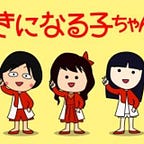Keeping Up with Chisato Moritaka: A Review of Hijitsuryokuha Sengen
The in-demand Japanese idol enriches and toys with her public image in her 1989 album
Translating as Inexperience Announcement, the title track for Chisato Moritaka’s 1989 album touches on the elephant in the room: “Sorry to bother, but I’m bad at singing,” she confesses, and she doesn’t sound too fazed about her flaw. Her direct address isn’t so much a cop out for her supposed adequate talents than a full self-awareness of herself as an idol, and as Hijitsuryokuha Sengen attests, Moritaka knew her character and capabilities very well four albums in.
Moritaka’s fans already knew a lot about her as an idol by Hijitsuryokuha Sengen. Her previous three albums presented the singer as a “girl next door” character who openly let listeners in on her romance troubles, all set to a series of glossy synth beats fitting as a bubbly soundtrack for her nights out in the city. The fourth record’s advance single “17 Sai” (17 Years Old), a cover of ’70s idol Saori Minami, went further in self-reference as it played up her pin-up image while its B-side “20 Sai” (20 Years Old) directly based its melodrama on the idol’s age.
Parts of Hijitsuryokuha hint at the knowledge that the public image of Moritaka left a strong impression to her audience as much as her artistry. The idol’s self-critique of her vocal talents in “Watashi Wa Onchi” (I Am Tone Deaf) doubles as an explanation of how exactly her voice functions throughout the album: she doesn’t wield the strongest voice, as she knows, and she tries her best compensating for it by excelling elsewhere, mainly through her songwriting.
Moritaka provides plenty of material for the audience in Hijitsuryokuha that grants that idol image a colorful life of its own. The songwriter writes a rich tale in “A-kun No Higeki” (Tragedy of Boy A), where she bumps into a former high-school “it” boy who confesses he has loved her after all these years. The details in the track begins to blur the line between fact and fiction as she references her own age as she did in her latest B-side: “When you were 16, you were shining,” the 20-year-old notes of her former classmate. However actually steeped in autobiography, she writes a strikingly specific experience that’s not so hard to imagine it bearing a good amount of truth.
The idol’s youth frequently pops up elsewhere in different contexts as an insecurity that she fixates upon as much as the perception of her own talents. She frames it as a punchline of sorts in the flashy synth-disco “Kondo Watashi Dokoka Tsureteitte Kudasaiyo” (Take Me Out Somewhere Next Time), where Moritaka attempts her best to graduate from a friend into a potential date in the eyes of a babying crush. It becomes a personal flaw in another scenario of the bittersweet reminiscence “Wakasaguita Koi” (Too Young for Love): “I was too young/ for that love to bear fruit/ I couldn’t support your feelings,” she sighs in the apologetic chorus.
While she finds navigating romance a challenge, Moritaka isn’t shy on record by any means. The idols sounds unafraid to put her foot down on unwanted behavior in “Korekkiri Bye Bye” (Final Bye Bye), her repulsion emphasized with a crowd of samples of her own voice. She urges a crush in the dreamy “Daite” (Hold Me) to acknowledge her feelings and just hold her close already. Her frustrated thoughts hit assertive even if she doesn’t speak her mind. The only thing holding her back in these situations is that lack of timing.
Moritaka, the idol, overall comes across as a three-dimensional character in the music of Hijitsuryokuha. She’s not a passive agent in romance but quite the opposite, confidently expressing her desires and demands in equal measure. The singer even teases the fantasies of the audience in the unprompted clearing of rumors in “Hadakaniwa Naranai” (I Don’t Get Naked). Moritaka shows a full grasp of her character in her fourth album by enriching it as much as she plays around with it, deepening the connection with her listeners in the process.
